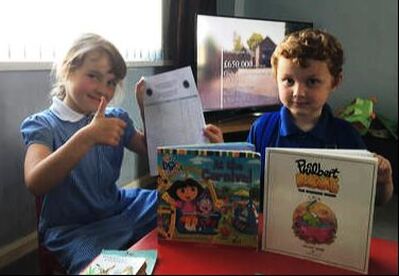 Congratulations to Iris and Archie who decided to raise funds for Roko 20 and organised a sponsored book read. They were sponsored for each book they managed to read in one week. A grand total of 44 books were read between them. Iris read 24 and Archie 20. They raised an amazing £386. We are so grateful to them for raising this money which enabled us to purchase Assessment Books for all classes up to Class 3. Asante sana! 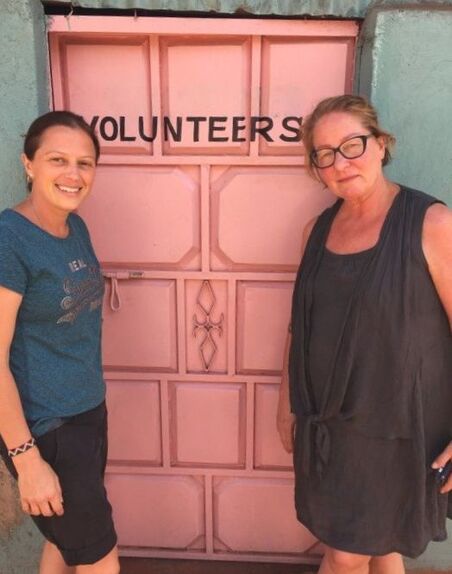 At 57 and 40, many of Aila’s and Jude’s friends thought they were mad, Aila (pronounced like Isla) for deciding to use 4 weeks of her annual leave as well as an unpaid week and the comfort of her home in Helsinki to spend time volunteering in a Kenyan school and Jude for taking a sabbatical from her paid employment in Somerset, England, for 3 ½ months (supported by IVS). However we’d beg to differ and I imagine there are many other like-minded souls who would agree it was time well spent. As the above shows you can volunteer for any period. Understandably a whole term helps the children and teachers to truly become familiar with you, and in order to establish the routine and benefit most, I would suggest a few weeks as a minimum stay but all are welcome. Accommodation and creature comforts
So if you decide that volunteering at Roko 20 is something you’d like to give a try, don’t fear there is suitable accommodation for you (at a very low cost). It’s not without its quirks but hey this is Africa and all of these idiosyncrasies are not insurmountable. Our apartment was on the second floor of a secure building. We had hot running water (sometimes too hot but there is a technique to this shower! like the toilets!!). Don’t fear they are not all drop toilets but the western flushing systems can require some added help from yourself and a bucket of water. Murang'a has a well-stocked four level supermarket (Maguna’s) only 25 minutes (walking) away for your western needs of Nescafe, Tuna fish (for Aila) Weetabix (for Jude), bread, Cadbury and even local tipples. There’s also a ‘first class hotel’ in Nokra’s, conveniently located next to this supermarket, where you can get a cold (and I emphasise the word cold) not just alcoholic beverage and it does good western and local food. It has a small pool if you also need to take a dip. Fresh produce picked that morning and bought at the market is available daily from local growers/ sellers, from tomatoes, onions, avocados, potatoes, carrots, green peppers, mango’s, bananas and courgette’s amongst large tubs of all types of beans and legumes, and freshly fried meat and vegie samosa’s, chapati’s and masala chips with tomato salsa!!! You won’t see much broccoli and the accommodation does not have a fridge but you can certainly eat fresh daily including at the school for a minimal amount. The school food gets a bit monotonous, as the menu is repeated each week but for this vegetarian it was perfectly edible and certainly filling. The Kenyan diet is carb rich. Again there are tricks to making things more palatable if the ugali is not to your liking, limit it and increase the cabbage. For those who love a good brew, prepare yourself now, Kenyan tea is not unlike chai. It is milky, weak and sweet and that’s without adding sugar. We were not a fan and I could not acquire the taste; however Aila, like many previous volunteers, adapted and mixed her Nescafe to make Cofftee? A blend of both cultures!! Likewise if you are worried about washing your clothes this can be done very competently by a local woman who would appreciate the income but I would also like to say there is a certain catharsis in washing the clothes you wear by hand, at the end of each day in a bucket of cold water and they are dry the next morning. Drinking water is available in large 10L refillable containers for next to nothing (150ksh). The monkey out the back of the apartment and at times some large cockroaches (affectionately named Cucarachi) are the only possible things that scared the pants off us. Lastly, what all of us cannot do without these days, technology!!! It is easy to access a Kenyan SIM and internet coverage in Murang’a is sufficient even with the poorer networks of Airtel and Telekom. There are good deals on data with all the providers and we never felt disconnected from home since arriving. Safari.com is recommended for those who MUST have access everywhere including at the school which can be patchy with the other providers. There are also opportunities for further exploring nearby, a day trip to Nairobi, a weekend in Ol Pejeta Conservancy where you can see some of the big five or simply a day sat by the larger pool surrounded by trees and lovely river at Nokras sister hotel Riverine which is only 9kms north of Murang’a. A day in the life at Roko 20 Roko has a 90+ student population ranging from 4 – 15 years old, from pre-primary 1 through to class 5. So what does volunteering really look like… let’s get down to business… We sorted donated shoes and clothing, we read to the children in class 1, 2 & 3, we observed classes, we played with the little ones (I could have eaten them on a plate they were so delicious) and supported the older ones and their teachers. We carried on where previous volunteers left off, particularly in computer classes (with the assistance of Esther for translation, at times) as well as reading story books to the whole class group in grade 1, 2 and 3, assisting with art to the younger years, in addition to P.E. and providing football drills (thanks to previous volunteer/ P.E. Teacher Johnny). For those who are teacher or TEFL trained there is opportunity to support and assist the school teachers in relevant classes like English. We also had the privilege of going on home visits to meet parents in order to obtain their story about what difference it would make if their child was sponsored to attend Roko 20 and also provide updates to existing sponsors about the children and families. Needless to say both Aila and I came away after our experience with a desire to sponsor children whose families and homes we saw first-hand. Amongst the heartbreaking poverty, there is unquestionable faith and amazing hospitality. For those volunteers physically capable of an undulating 40 minute walk, the school is within walking distance. It is also an amazing way to start the day, as the sun rises over the hills and crops along the way. However I would recommend walking a couple of times with someone who knows the way. As Aila would testify getting lost one morning after going up and down dale in quite the wrong direction. School starts at 7:20am, with morning assemblies on Monday and Friday’s at 8am. Be prepared to speak, like the other teachers, to the entire school group at times. The school van drops the children in two rounds, some as early as 6:40 and others at 7:10am. Like in many developing countries, things can be and happen slowly in Kenya. Waiting for the school bus at the end of the day can provide an opportunity to help with the after school literacy club or just ‘enjoy’ the children, playing simple games (skipping, hand clapping rhymes, throwing Frisbee, kicking the football) with them. I won’t lie it can all be tiring and the days can feel long as there are many friendly, curious, often loud and at times demanding faces wanting to spend time and engage with you and at times you may crave personal space, but it soon returns once your home in the evening and on weekends. At times you will wonder if you’re doing the wrong thing, or worry that you are not doing anything at all or enough, and what should I be doing? You’ll also feel shattered and want nothing more than a shower and to go to bed at 8pm. It’s all perfectly normal I can assure you!!! Don’t worry after a couple of weeks you do learn a lot of the children’s names. You need to be prepared to high five and say, ‘Jambo’ ‘hello’ or ‘good morning’ a lot (at least 30+ times a day), including to everyone around Murang’a. At times feeling like a celebrity and akin to Beyonce!!! As one of only a handful of western, Caucasian foreigners in this town we were certainly noticed and known. However Murang’a felt perfectly safe for us, and the only times of caution were once it was dark (as it does not have ample street lighting which has footing hazards amongst other things). We never knew we were so versatile. Often joking what did we learn from this (getting lost)… or what did we learn today… (we can combine tea and coffee or how to manipulate the shower so we didn’t scald ourselves every time). Roko 20 is a genuine school community where children want to come every day. They are the first ones here and they are often reluctant to leave. This is a grass roots organisation that literally started with one classroom and grew. If we were to measure in time the cost of all the hours the staff work, the school runs at a loss and the effort and time that everyone works is immeasurable. The donations certainly do not cover all the administration and running costs. This is not a big corporation with TV commercials. If you choose to volunteer you liaise directly with Tracey who started Roko 20 in 2014. It is the personal touches and effort that Roko 20, and to be fair all Kenyan’s will go to, that made all the difference in these volunteers experience. Volunteers are respected and valued at Roko 20. Ideas welcomed. Support with fundraising appreciated. Your contribution is important and it is hoped that Roko 20 would be visited by volunteers throughout the year, whereby the next volunteer picks up where the last left. It is vital you come with the right (and a realistic) attitude. First establishing relationships and recognising the pace of Kenyan change. We are not here to save the world. All that being said, I would not trade the difficult parts, as it all has provided an undoubtedly, enriching learning opportunity. Roko 20, the staff and of course children will leave a long lasting imprint on your heart and soul. Questioning many things about yourself, your values and society as a whole and seriously contemplating when you could make the trip to Roko 20 again. Jude Amer and Aila Tiira |
Archives
October 2021
|

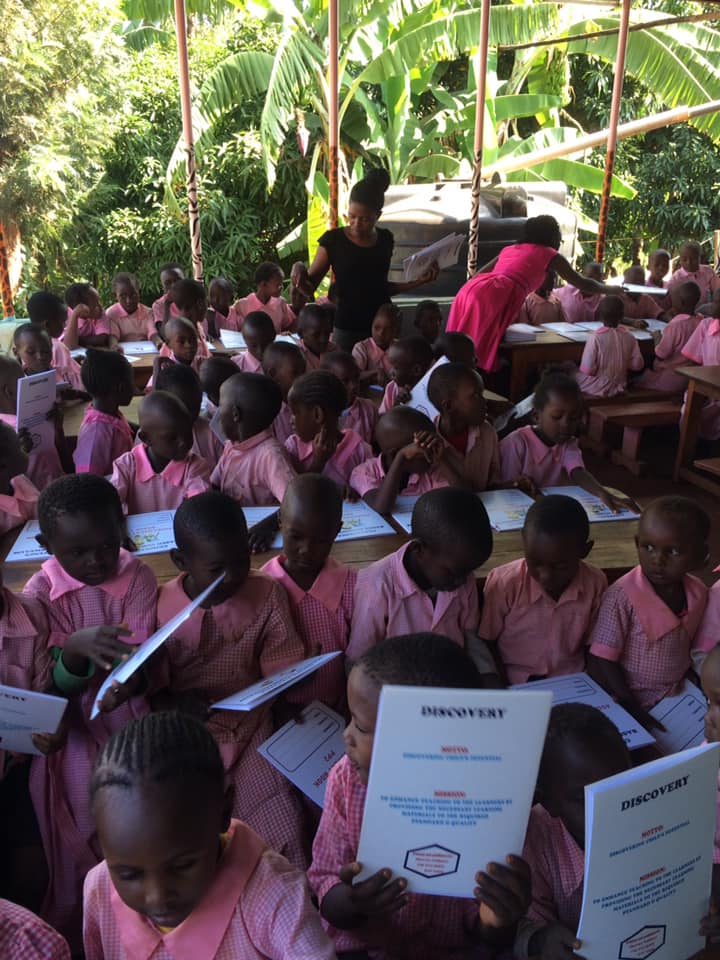
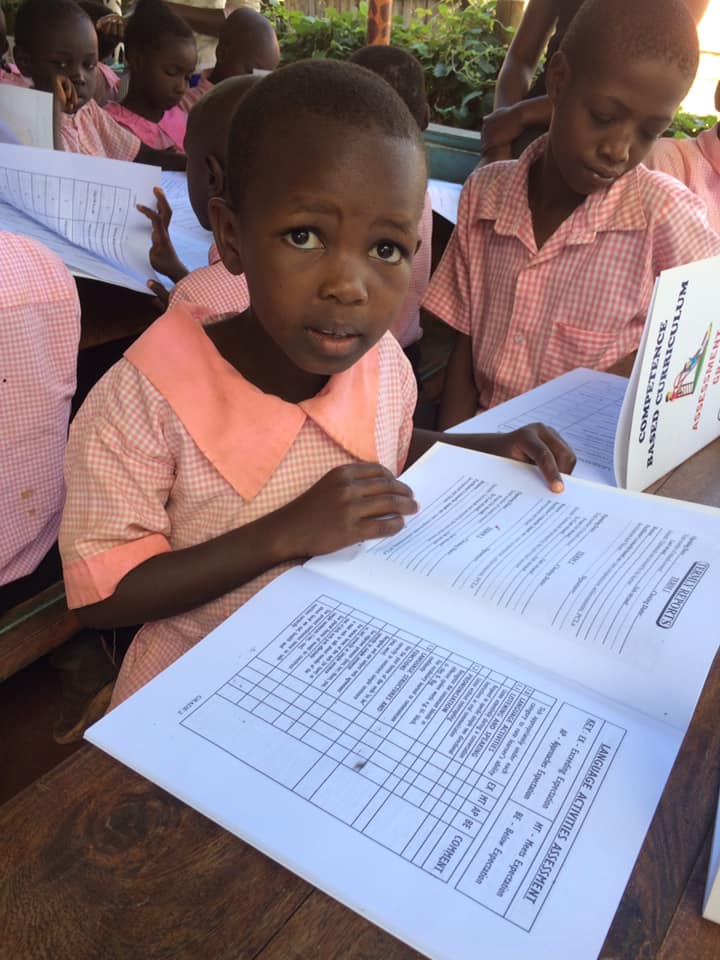
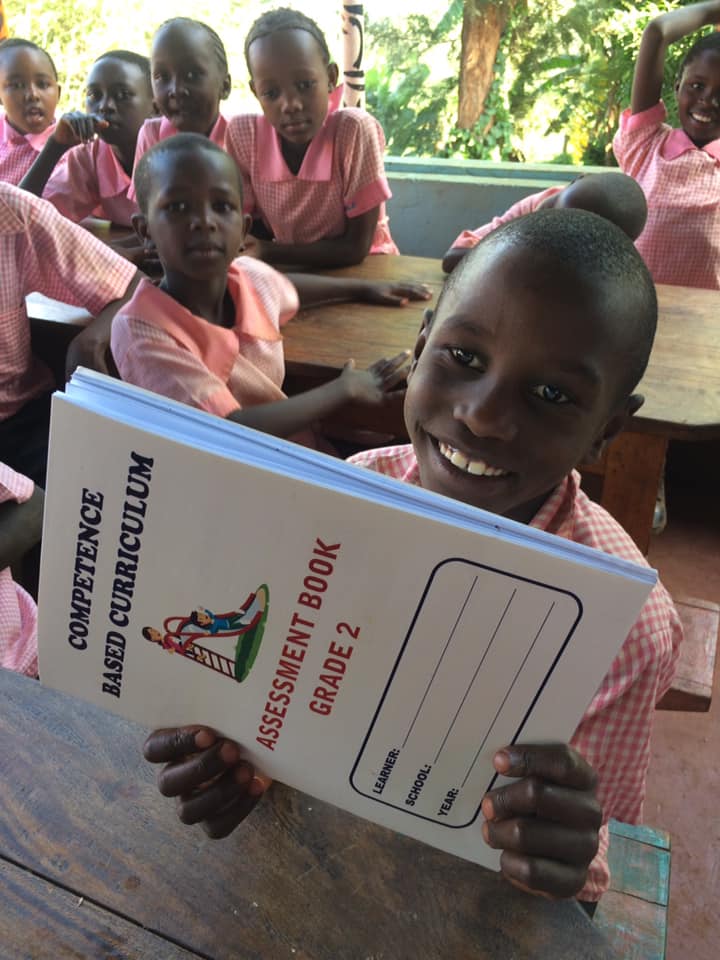
 RSS Feed
RSS Feed
